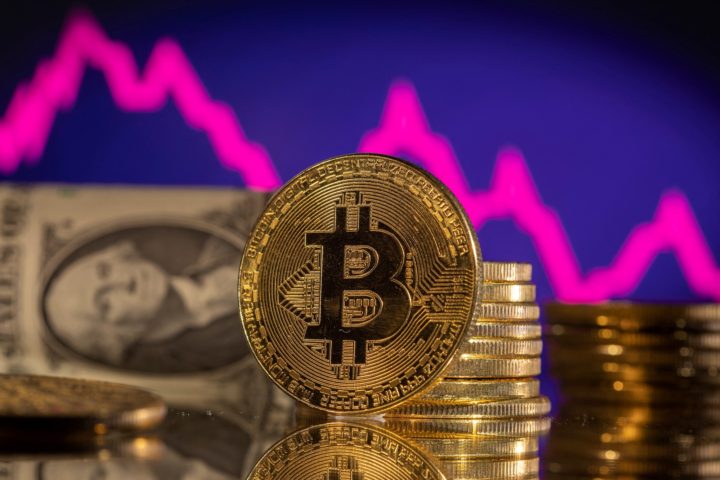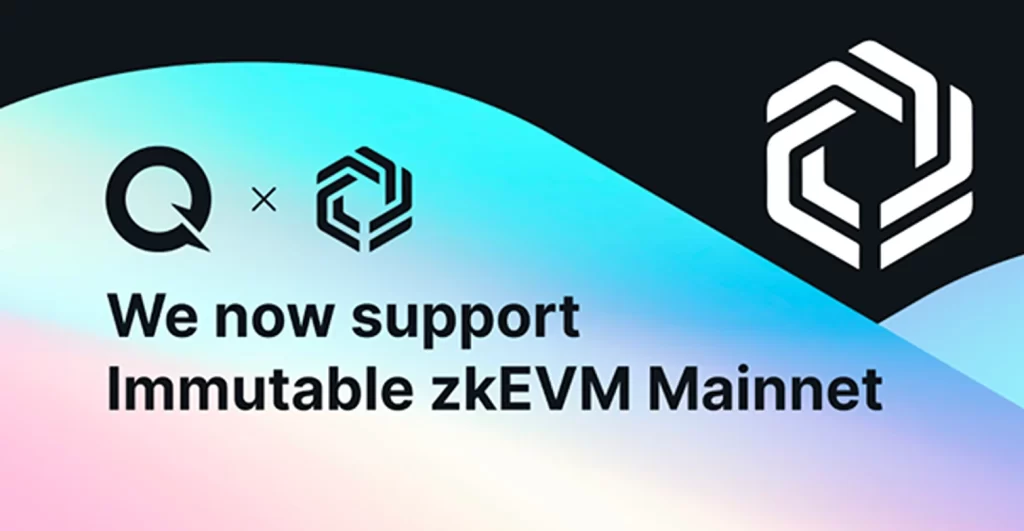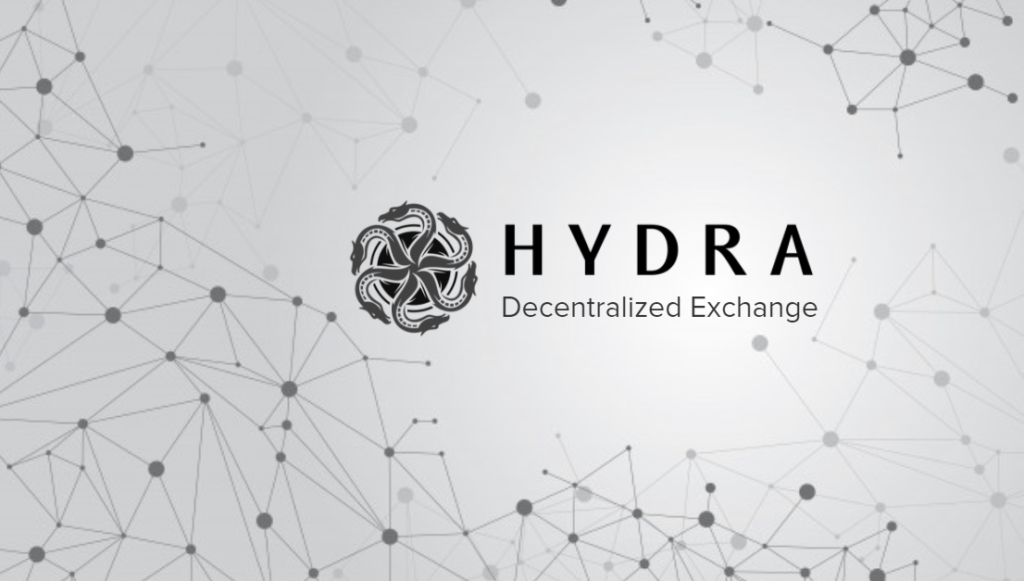Paul Sztorc, a prominent advocate for Bitcoin Drivechain technology, believes that the increasing mainstream acceptance of Bitcoin (BTC) will necessitate greater scalability and enhanced infrastructure functionality.
In an extensive interview with Cointelegraph, Sztorc discussed the pros and cons of the high-profile approval of Bitcoin exchange-traded funds (ETFs) in the United States and the long-term implications of institutional capital pouring into the Bitcoin ecosystem.
According to Sztorc, the emergence of Bitcoin ETFs is a sign of Bitcoin’s health and validation. It signifies that Bitcoin is becoming more widely recognized, and its name is gaining prominence.
Furthermore, it results from certain types of capital flow requirements that necessitate the use of ETFs. Sztorc, co-founder of LayerTwo Labs, considers Bitcoin ETFs as an “inevitable consequence of age.”
He highlights that customers of BTC-backed ETFs differ from everyday retail investors and dedicated Bitcoin enthusiasts.
These ETFs inherently involve custody and regulatory reporting, which aligns with the requirements of certain investors who are unlikely to self-custody Bitcoin.
However, Sztorc acknowledges that the hype surrounding Bitcoin ETFs could serve as an entry point for newcomers to the Bitcoin space.
Still, he cautions that excessive focus on ETFs might divert attention from Bitcoin’s underlying metrics and performance, with an unhealthy obsession with price being a potential downside.
LayerTwo Labs, over the past four years, has been diligently developing Drivechains, which are outlined in Bitcoin Improvement Proposals (BIPs) 300 and 301.
READ MORE: SEC Files Lawsuit Exposing $1.7 Billion Cryptocurrency Fraud Scheme
These BIPs describe how the Bitcoin network can interact with layer-2 blockchains or sidechains, allowing the creation, deletion, and transfer of BTC between them.
Sztorc, the author of BIP-300, champions the functionality that Drivechains can offer and has extensively discussed the intricacies of these proposals at various Bitcoin conferences.
As significant events like the approval of Bitcoin ETFs bring more liquidity into the Bitcoin ecosystem, Sztorc emphasizes that the network may encounter increased transaction volumes.
He cites Satoshi Nakamoto’s prediction that in two decades, there will either be substantial transaction volume or none at all.
Sztorc aligns with this view, stressing that Bitcoin will need to compete effectively to maintain its position.
While the Lightning Network has made strides in enabling low-fee, high-throughput transactions on the Bitcoin network, Sztorc argues that the ecosystem requires additional functionality to address challenges from competing altcoins, hard fork campaigns, and extension block campaigns.
BIP-300, according to Sztorc, introduces competition, fostering innovation among different software developers, and allowing users to participate in various sidechains while those who choose not to remain unaffected.
In summary, Bitcoin ETFs mark a significant milestone for Bitcoin’s mainstream adoption, but they also raise concerns about excessive focus on price.
Sztorc believes that the Bitcoin network’s scalability and functionality will be critical in handling increased transaction volumes resulting from growing adoption.
Drivechains, as proposed in BIPs 300 and 301, offer a solution to this challenge, promoting competition and flexibility in the Bitcoin ecosystem’s development.
Bitget, a prominent player in the cryptocurrency and Web3 sector, has unveiled a comprehensive study centered around the imminent Bitcoin halving slated for April 2024, aiming to shed light on its implications for investment strategies. This in-depth survey, encompassing a diverse global demographic, provides valuable insights into the mindset of crypto investors and their forecasts regarding market dynamics post-halving.
The research project engaged a substantial sample of 9,748 individuals hailing from various regions, including West Europe, East Europe, South East Asia, East Asia, MENA, and Latin America. Employing anonymized data analysis, the study sought to discern how investors perceive the impending Bitcoin halving and how their investment strategies are poised to evolve in response.
Notably, an overwhelming 84% of surveyed investors harbor optimism about the positive repercussions the Bitcoin halving will exert on the crypto market, with widespread belief that it will propel Bitcoin past its all-time high of $69,000. This sentiment is particularly fervent in Latin America, East Asia, and South East Asia, whereas European regions tend to adopt a more cautious outlook.
Expectations regarding Bitcoin’s price during the impending halving in April 2024 span a wide spectrum. While a substantial portion of global investors anticipates a price range between $30,000 and $60,000, around 30% of respondents envision the price soaring beyond $60,000, with heightened enthusiasm in markets like Latin America.
Looking ahead to the post-halving landscape, investors collectively share the belief that Bitcoin will surpass its previous all-time high during the subsequent bull run. This optimism stems from a combination of short-term prudence and long-term confidence, notably prevalent in select European markets.
When it comes to predictions for the all-time high (ATH) price in the next bull market, the majority (55%) foresee Bitcoin stabilizing within the $50,000 to $100,000 range, while a notable segment remains even more bullish, expecting it to surge past $150,000. This bullish sentiment is especially pronounced in West Europe, a region that leaned toward conservatism during the halving period.
The study also unveils intriguing trends in investment intentions for 2024. Approximately 70% of participants from the surveyed regions express a clear intention to augment their crypto investments, signaling a robust confidence in the crypto market’s potential. This trend is particularly robust in MENA and East Europe, where investors exhibit a higher propensity to bolster their investment levels. Conversely, South East Asia and East Asia display a more balanced investment outlook, with a preference for maintaining current investment levels.
Bitget’s Managing Director, Gracy Chen, expressed her thoughts on the study, emphasizing its significance in understanding the evolving cryptocurrency investment landscape. She underscored the varied expectations and investment plans that the findings reflect, highlighting 2024 as a pivotal year for the Bitcoin market.
“The Bitget Study on BTC halving impacts provides valuable insights into the evolving landscape of cryptocurrency investment. The findings reflect a broad spectrum of expectations and investment plans, indicating that 2024 will be a significant year for the Bitcoin market.
“We are pleased to see such positive sentiment emerging as market conditions continue recovering. At Bitget, we firmly believe in Bitcoin’s potential to establish itself as a truly global store of value.
“As a leading exchange, we aim to play our part in contributing to the growth and development of the Bitcoin ecosystem through innovative product offerings, educational resources, and unwavering support of the community. The road ahead remains bright, and we look forward to empowering more investors and institutions alike to participate in Bitcoin’s ongoing success story,” Gracy concluded.
In January, Bitcoin’s exchange outflows have been challenging bearish predictions for its price.
On-chain analytics firm Glassnode’s latest data reveals that despite a 20% dip in the BTC/USD price, Bitcoin continues to flow out of exchanges.
This indicates that investor appetite for Bitcoin remains strong, unaffected by the current price pressures.
One notable observation is that the outflows from the United States exchange Coinbase have consistently exceeded 10,000 BTC per day since the launch of the first U.S. spot Bitcoin exchange-traded funds (ETFs).
Although corresponding inflows have had an impact on exchange balances, there is a noticeable trend emerging in the second half of the month.
Outflows and inflows are beginning to balance out, suggesting a potential reduction in the extreme volatility seen immediately after the ETFs were launched on January 11.
Exchange balances had been steadily increasing throughout January but reversed direction on January 23.
Since then, the trading platforms monitored by Glassnode have seen a reduction of 7,400 BTC (equivalent to $321 million) in their balances.
READ MORE: Hong Kong’s Regulator Expedites Approval Process for Spot Bitcoin ETFs Following US SEC’s Approval
In addition to exchange outflows, ETF flows are also favoring Bitcoin bulls. Previously, the Grayscale Bitcoin Trust (GBTC) was sending around $700 million worth of BTC to Coinbase daily.
However, recent daily outflows from GBTC have decreased to less than $200 million. In terms of BTC, there were 24,000 BTC outflows on January 25, and just over 6,000 BTC outflows on January 29.
Analyzing GBTC flows with data from statistics resource CoinGlass, financial commentator Tedtalksmacro predicted a shift in the trend from net outflows to net inflows for spot ETFs.
He argued that as this shift occurs, it would be challenging to present a bearish narrative unless there is an unforeseen event.
Tedtalksmacro believes that the bearish sentiment surrounding GBTC outflows in recent weeks is exaggerated, pointing out that there is currently $26 billion worth of on-chain holdings in BTC ETFs, and this number is expected to continue rising as investors become more comfortable with this asset class worldwide.
In an announcement this Monday, QuickNode, a highly scalable blockchain platform, welcomed Immutable zkEVM, a Layer 2 blockchain specifically designed for gaming. Immutable zkEVM aims to provide gaming developers on QuickNode with seamless building tools, combining the compatibility of Ethereum Virtual Machine (EVM) with high scalability and Ethereum-grade security for web3 games.
Following the launch of Immutable zkEVM on QuickNode, gaming developers will have access to a high-performance, scalable blockchain, ensuring a better gaming experience for developers and players. Notwithstanding, QuickNode will offer gaming developers a more robust and secure platform to build Web 3 games. The goal is to revolutionize blockchain gaming, bringing seamless development of Web 3 games to the masses.
Dmitry Shklovsky, CEO of QuickNode, welcomed Immutable zkEVM to its platform terming the move as a “significant milestone in advancing blockchain technology in the gaming sector”. Adding to EVM compatibility and scalability, the move to QuickNode will also offer gaming developers and DApps Ethereum-grade security, in a first-of-its-kind technology.
“This is a huge leap forward in our ongoing effort to democratize access to high-quality blockchain infrastructure, and we can’t wait to see the incredible gaming experiences our community will create with this powerful new tool,” Dmitry said speaking on the launch of Immutable zkEVM on QuickNode.
Immutable zkEVM: A blockchain built for gamers
Immutable zkEVM is a blockchain built for Web 3 gaming development, combining optimized security, scalability and speed to help developers build out user-centric gaming experiences. The first-of-its-kind technology aims to offer specific Web 3 gaming development tools, focusing on empowering game studios with vital resources like liquidity, community, and powerful network effects.
The launch of Immutable zkEVM on QuickNode opens up the platform to a wide range of potential EVM capabilities, and Ethereum’s security. It will allow gaming developers to build out Web 3 games for global audiences while reducing transaction costs. Additionally, QuickNode is building a solution to remove gas fees for players, ensuring a seamless and affordable gaming experience for all players.
According to a team representative from Immutable zkEVM, the decision to build their platform on QuickNode is due to the seamless developer tools that the blockchain offers. The platform allows developers to solely focus on building their DApps instead of focusing on other blockchain-related developments such as running nodes. This will save Web 3 game developers time and resources, allowing faster deployment of games and minimising obstacles in creating blockchain games.
Finally, Immutable zkEVM offers developers an opportunity to build futuristic games, unlock new revenue streams and safeguard their communities. The platform offers a testnet development area, allowing developers to innovate and soft-launch their projects before a full mainnet launch.
Decentralized finance (DeFi) aims to recreate traditional financial services without intermediaries using blockchain technology. However, issues like slow transaction speeds and complex user interfaces limit mainstream adoption. This is the problem Hydra Chain strives to solve – an advanced layer 1 network designed for real-world usability, security, and simplicity.
At Hydra’s foundation is its native HYDRA token, enabling network governance and passive income via staking rewards. Now, Hydra propels its DeFi capabilities forward with LYDRA, a liquid derivative allowing HYDRA stakers to tap additional utility.
The newly launched LYDRA/HYDRA pool on Hydra’s decentralized exchange (DEX) signals meaningful progress unlocking dual-token functionality. By facilitating trades between the assets, the pool supports price discovery for embryonic LYDRA while letting HYDRA holders access another yield channel. Apart from incentives for liquidity miners, the pairing paves the way for innovations like leveraged staking and cross-chain arbitrage.
With this expansion to its DeFi ecosystem, LYDRA and HYDRA hold immense opportunity to drive user adoption while furthering real-economy blockchain integration. The joint pool accelerates this vision by broadening the potential of both tokens.
Understanding Hydra Chain and LYDRA
Hydra Chain uniquely combines advantages from Bitcoin, Ethereum, Qtum and BlackCoin. From Bitcoin – secure architecture and UTXO model; Ethereum – Virtual Machine and smart contracts; Qtum – decentralized governance; BlackCoin – Proof of Stake consensus v3.
This robust foundation empowers industry-top speeds, low fees, and extensive functionality to power dApps. HYDRA also enables staking and governance to enrich its network. These capabilities have attracted projects like LockTrip, GoMeat and more.
Now, Hydra elevates its tech stack further with LYDRA – “Liquid HYDRA”. LYDRA is a liquidity derivative allowing HYDRA stakers to access supplemental utility. By locking HYDRA, users can mint LYDRA 1:1 to maintain staking rewards while freely utilizing the LYDRA. LYDRA can then be burned to reclaim the staked HYDRA.
This unlocks two key advantages: First, HYDRA stakers gain flexibility to engage with DeFi without losing staking revenue. Second, by capitalizing on asset price differences, innovative tactics like leveraged staking become possible to boost yields. As the pioneering on-chain pool for the LYDRA derivative, the LYDRA/HYDRA DEX pool sets the stage for users to harness these benefits completely.
Hydra’s leading-edge innovations persist in pushing the frontiers of usability and adoption. LYDRA expands on this legacy by augmenting the potential of its thriving ecosystem.
The LYDRA/HYDRA Pool on Hydra DEX
The pool facilitates swapping between LYDRA and HYDRA similarly to DEX leaders like Uniswap or PancakeSwap. Liquidity providers furnish equivalent values of both tokens into the pool to mint LP tokens. Asset ratios then fluctuate dynamically based on market activity, with prices derived from the pooled reserves.
However unique advantages emerge from the direct link between LYDRA and HYDRA. For example, the pool produces a transparent on-chain benchmark price for LYDRA to progress beyond over-the-counter constraints.
More broadly, the launch unlocks new utility for both tokens and users. With direct LYDRA liquidity, HYDRA stakers can optimize yields through leveraged staking tactics without relying on external counterparties. Advanced traders can conduct multi-chain arbitrage across Ethereum and Hydra based on price discrepancies. The interchange between tokens also cements Hydra’s internal ecosystem.
For DeFi at large, the pool exemplifies a model to generate liquidity derivatives for improving capital efficiency – by fractionally freeing staked assets without decreasing security, new pool models can redistribute unused value. The mechanics introduced by Hydra strike a balance between previously incompatible incentives across decentralized stakeholders.
While the LYDRA/HYDRA pool itself lacks a reward scheme, Hydra incentivizes other pairs via liquidity mining programs including:
Stablecoin Pools:
2,000 HYDRA/month for USDC/USDT (0.05% fee)
2,000 HYDRA/month for USDC/DAI (0.05% fee)
Lydra Pools:
5,000 HYDRA/month for USDC/LYDRA (0.30% fee)
5,000 HYDRA/month for ETH/LYDRA (0.30% fee)
5,000 HYDRA/month for WBTC/LYDRA (0.30% fee)
High Correlation Pool:
3,000 HYDRA/month for WBTC/ETH (0.30% fee)
These incentives deepen liquidity and participation across the pairs. Interested users can refer to Hydra’s Liquidity Mining Guide for further details.
Future Outlook and Challenges
With the success of the LYDRA/HYDRA pool as a case study, Hydra races to integrate with ecosystem partners and layer 2 solutions, allowing its derivative model to enhance capital efficiency broadly. Other exchanges and DeFi platforms could emulate this template.
However, users should remain vigilant of external dangers like smart contract risks and financial hazards from high volatility. While asset correlation limits impermanent loss, it does not remove it entirely. Users must balance yield potential against possible downsides. Regulatory jurisdiction also persists as an open question for tokenized derivatives.
Nonetheless, the introduction cements the integral role LYDRA and Hydra will play advancing decentralized finance. By charting new ways to generate yields while retaining principal soundness, Hydra provides a window into the future framework of asset valuation and distribution in digital economies. If adoption mirrors innovation, the next leaps in DeFi may germinate from Hydra’s ouroboros of collateral and liquidity.
Getting Involved
Interested users should join Hydra’s Telegram and Twitter to interact with the passionate community and team directly. Telegram facilitates technical support, announcements, governance and collaborative thinking. Twitter broadcasts the latest network developments. Don’t miss official news, articles and expert analysis by subscribing to the Hydra News Channel. Also explore the feature-rich Hydra DEX and ecosystem partners by bookmarking the Hydra Website. Refer to the platform’s continuously updated documentation and guides to start staking, providing liquidity and more.
Tesla’s decision to divest its Bitcoin holdings has led to a missed opportunity of over $300 million in potential profits.
The electric vehicle company initially entered the world of cryptocurrency in February 2021 with a groundbreaking investment of $1.5 billion when Bitcoin’s price was approximately $36,000.
Since Tesla’s first reported Bitcoin balance on February 8, 2021, the company’s stock price has decreased by about 40% compared to Bitcoin’s performance.
Specifically, Tesla’s stock (TSLA) has underperformed Bitcoin (BTC) by 40.1%, while Bitcoin itself has appreciated by 7.39% against the US dollar, and Tesla’s stock has declined by 35.7% against the US dollar.
Tesla’s approach took an unexpected turn when the company sold roughly 10% of its Bitcoin holdings in March 2021 and around 75% in the second quarter of 2022.
Elon Musk, Tesla’s CEO, explained that these sales aimed to showcase Bitcoin’s liquidity and strengthen Tesla’s financial position during uncertain times.
Had Tesla retained its entire Bitcoin investment, it could have realized a hypothetical profit exceeding $300 million, given Bitcoin’s current value of around $41,500.
READ MORE: US Government Plans to Sell $118 Million Worth of Seized Silk Road Bitcoin
However, Tesla has maintained its remaining Bitcoin holdings, estimated at approximately 9,720 BTC, in recent quarters, signaling a more conservative strategy in anticipation of a bullish year for Bitcoin.
Interestingly, Tesla’s previous Bitcoin sales coincided with quarters where the company reported weaker free cash flows, which represent the cash generated after covering operational expenses.
For instance, in the first quarter of 2021, Tesla’s $272 million Bitcoin sale accounted for a staggering 93% of the company’s free cash flows during that period.
Similarly, in Q2 2022, the 73% reduction in free cash flows aligned with Tesla’s Bitcoin sales. It appears that Musk relied on Bitcoin to boost finances during Tesla’s financially constrained periods.
However, the situation may change, as Tesla’s free cash flows have been on the rise throughout 2023. In Q4 2023, Tesla’s free cash flow was a robust $2.1 billion, contributing to a total of $4.4 billion for the year.
Many analysts predict a potential increase in Bitcoin’s value in 2024, citing the approval of spot Bitcoin exchange-traded funds in the United States and the expected impact of the upcoming Bitcoin halving event as key factors driving their optimism.
Tesla’s decision regarding its remaining Bitcoin holdings may be influenced by its improving financial outlook and the evolving cryptocurrency landscape.
The HE1 share price is significantly up over the last 12 months, delivering impressive returns to investors in the UK and beyond.
The stock market is a dynamic and ever-changing arena that constantly piques the interest of investors and financial analysts. Among the myriad of companies listed on various stock exchanges, HE1 stands out as a notable entity. In this comprehensive article, we will delve into HE1, exploring its historical performance, the factors that influence its share price, and the potential future prospects of this enigmatic stock.
Introduction to HE1
HE1, a ticker symbol that may not immediately ring a bell, belongs to a company that has garnered attention in recent times. As we delve into the world of HE1, we discover that it represents an entity known as “HE1 Corporation,” a relatively new player in the global market.
READ: Rolls Royce Share Price
Historical Share Price Performance
Before assessing the current state of HE1’s share price, it is imperative to first examine its historical performance. A retrospective analysis can provide valuable insights into the stock’s behavior over time.
The Inception (20XX-20XX)
HE1 Corporation made its debut on the stock exchange in the early 20XXs, sparking initial intrigue among investors. The stock’s early performance exhibited the classic volatility often associated with newly listed companies. It witnessed fluctuations as market participants tried to gauge the company’s potential.
The Ascension (20XX-20XX)
In the subsequent years, HE1 underwent a transformation that captured the attention of investors worldwide. A combination of innovative product offerings, strategic acquisitions, and impressive financial results catapulted the company into the limelight. During this period, HE1’s share price embarked on a remarkable upward trajectory, drawing both institutional and retail investors into the fold.
The Challenges (20XX-20XX)
However, as HE1 continued to expand its operations, it encountered its fair share of challenges. Economic downturns, regulatory changes, and global market fluctuations put pressure on the stock price. HE1’s ability to navigate these obstacles and maintain its growth trajectory became a topic of concern for investors.
Factors Influencing HE1’s Share Price
Understanding the dynamics that influence HE1’s share price is crucial for investors seeking to make informed decisions. Several factors play a pivotal role in shaping the stock’s performance:
1. Industry Trends
HE1’s fortunes are closely linked to the trends and developments within its respective industry. Shifts in consumer preferences, technological advancements, and competitive dynamics can significantly impact the company’s share price.
2. Financial Performance
The company’s financial health, including revenue growth, profitability, and debt levels, is a key determinant of its share price. Positive financial results often attract investors, while poor performance can lead to a decline in share value.
3. Market Sentiment
Investor sentiment, often driven by news, rumors, and market speculation, can sway HE1’s share price. Positive sentiment can result in buying frenzies, while negative sentiment can lead to sell-offs.
4. Macroeconomic Factors
Global economic conditions, interest rates, and inflation can indirectly influence HE1’s share price. Economic downturns may lead to reduced consumer spending, affecting the company’s revenue and profitability.
5. Company Strategy
HE1’s strategic initiatives, such as mergers, acquisitions, and expansion plans, are closely monitored by investors. Successful execution of these strategies can boost investor confidence and positively impact the share price.
Future Prospects
As investors contemplate the future of HE1, several factors come into play, potentially shaping the stock’s performance in the coming years.
1. Innovation and Product Development
HE1’s ability to innovate and develop new products or services will be pivotal in maintaining its competitive edge. Companies that adapt to changing consumer demands and technological advancements often thrive in the long run.
2. Market Expansion
HE1’s pursuit of new markets and geographical expansion can be a growth driver. Entering untapped markets or diversifying its customer base can lead to increased revenue streams and a positive impact on the share price.
READ: Adani Power Share Price
3. Economic Conditions
The broader economic landscape will continue to influence HE1’s performance. Economic stability, consumer spending trends, and fiscal policies can all impact the company’s financial results and, consequently, its share price.
4. Regulatory Environment
Changes in regulations and compliance requirements specific to HE1’s industry may affect its operations and profitability. Investors will closely monitor the company’s ability to adapt to evolving regulatory landscapes.
5. Competitive Landscape
The competitive environment within HE1’s industry will play a significant role in determining its future success. Maintaining a competitive advantage and effectively fending off rivals will be critical.
Conclusion
In conclusion, HE1’s journey in the stock market has been marked by intriguing ups and downs. The stock’s historical performance reflects the inherent volatility of the market, where external factors, economic conditions, and market sentiment all play a role in shaping its trajectory.
For investors, it is imperative to keep a close eye on the various factors that influence HE1’s share price, from industry trends and financial performance to market sentiment and macroeconomic conditions. While the future remains uncertain, HE1’s ability to innovate, expand, and navigate the challenges of a dynamic business environment will likely be key determinants of its long-term success.
As HE1 continues to evolve and adapt to the ever-changing landscape of global markets, its story remains one of intrigue and potential. Investors, both seasoned and novice, will watch closely to see how this enigmatic stock unfolds in the years to come.
In his latest blog post titled “Yellen or Talkin’?” dated January 24, Arthur Hayes, the former CEO of BitMEX, has delivered a bearish short-term price prediction for Bitcoin (BTC), suggesting it may encounter a significant drop to $35,000 or even lower.
Despite Bitcoin’s remarkable 75% increase over the past year, Hayes identifies a confluence of factors that could contribute to this impending downturn.
One of the primary concerns outlined by Hayes is the ongoing Red Sea conflict between the United States and the Houthis, which is having ramifications on global shipping.
He notes that this conflict could lead to increased inflation as risk assets, including cryptocurrencies, anticipate a potential shift by the Federal Reserve in March, involving reduced interest rates to attract liquidity back into the market.
Hayes highlights that elevated shipping costs, driven by weather and geopolitical issues, may cause a surge in inflation during the third and fourth quarters of the year.
To combat this, he speculates that Fed Chair Jerome Powell will engage in verbal intervention, signaling potential rate cuts without actually implementing them.
Hayes emphasizes that Bitcoin is uniquely positioned to benefit from this scenario, as it thrives in times of economic uncertainty.
Another factor Hayes touches upon is the state of the U.S. regional banking sector.
READ MORE: Hugewin Review 2024: Is It Legit and Safe? A Breakthrough in Crypto Casino Gaming
He mentions that since the financial crisis in March 2023, the U.S. government has provided support through the Bank Term Funding Program (BTFP), which is set to expire soon.
Despite lingering financial problems within the banking sector, Hayes believes that the fate of liquidity and other related issues rests on Treasury Secretary Janet Yellen’s future decisions.
Hayes suggests that a few banks may need to fail if the BTFP is not renewed to pave the way for the cuts, QT taper, and potential resumption of Quantitative Easing (QE) that the market expects in March.
He asserts that the only thing that could surpass fighting inflation in priority is a financial crisis.
Regarding Bitcoin’s price, Hayes predicts that it could experience a substantial correction, potentially reaching $33,600, or a 30% decline from its peak after ETF approval at $48,000.
He believes that Bitcoin might find support within the range of $30,000 to $35,000.
As a result, Hayes has taken a position by purchasing put options with a strike price of $35,000 expiring on March 29, 2024.
This sub-$35,000 level, according to Hayes, presents an opportunity for investors to capitalize on the impending market dip.
On January 23, BTC/USD briefly touched $38,500 on Bitstamp, its lowest point since early December, before rebounding approximately $1,700 higher, as indicated by data from Cointelegraph Markets Pro and TradingView.
The ongoing saga of an investor exodus from Grayscale’s Bitcoin Trust (GBTC) has sent shockwaves through the cryptocurrency market, dragging Bitcoin’s price down to below $39,000 for the first time in nearly two months.
Since its transformation into a spot Bitcoin exchange-traded fund (ETF) on January 11, GBTC has experienced massive outflows, totaling more than $3.4 billion.
In response to this, Grayscale has been depositing vast amounts of Bitcoin onto the crypto exchange Coinbase Prime, presumably for sale.
The situation has raised concerns about the extent of the GBTC exodus and its potential consequences.
According to Eric Balchunas, an ETF analyst at Bloomberg, GBTC saw outflows of $515 million on January 23, resulting in a loss of 13% of its outstanding shares.
However, there are indications that the pace of outflows may be slowing down.
In an informal poll conducted on social media platform X (formerly Twitter), Balchunas sought the opinion of the community on when the “mass exodus” from GBTC might end.
Nearly half of the respondents believed it could continue until shares outstanding had diminished by 35–50%, while Balchunas and fellow Bloomberg analyst James Seyffart estimated this might occur at around 25% of outstanding shares.
Currently, Grayscale’s website shows 600.5 million shares outstanding, holding a total of 536,694.9 Bitcoins in trust.
READ MORE: US House Committee Pressures Meta for Transparency on Crypto and Blockchain Plans
In contrast, data from CC15Capital indicates that 82,525 Bitcoins have departed from GBTC since January 10.
The recent wave of outflows is primarily attributed to the defunct cryptocurrency exchange FTX, which reportedly sold two-thirds of its 22.3 million GBTC shares in just three days of trading.
FTX still holds approximately eight million shares, valued at around $281 million, awaiting sale.
Additionally, there is growing concern that Bitcoin from Mt. Gox may soon enter the market.
The Mt. Gox trustee has reportedly contacted creditors to complete identity verification for crypto exchange accounts, which are intended to be used for repaying Bitcoin and Bitcoin Cash. This potential influx of assets could add further downward pressure to Bitcoin’s price.
As of now, Bitcoin is trading at $39,949, showing a slight increase of 0.60% for the day, according to data from CoinMarketCap.
The Crypto Fear & Greed Index hit a 100-day low of 48 on January 24, reflecting the uncertainty and apprehension surrounding the cryptocurrency market.
Syscoin, a longstanding advocate for harnessing Bitcoin’s infrastructure to drive blockchain innovation, has joined forces with Polyhedra Network and NodeKit to announce a groundbreaking initiative. This strategic partnership is set to introduce Zero-Knowledge Proof-of-Data Availability (zkDA) into Syscoin’s ecosystem, marking a significant advancement in Bitcoin’s merged mining mechanism and decentralized finance (DeFi) capabilities.
Key highlights of this new partnership include:
- Bitcoin Integration via zkBridge: This enables seamless two-way transactions between Bitcoin and Rollux, Syscoin’s EVM Layer 2, establishing a robust Bitcoin Layer 3.
- Client-Side Receiver Chain on Rollux: This enhancement boosts DeFi capabilities and interoperability, utilizing Syscoin’s Proof-of-Data Availability (PoDA).
- Integration of zkDA in Syscoin: zkDA is deployed across multiple blockchains, adding modularity and enhancing security.
- Sender Chain for Syscoin Assets: This trustless transfer mechanism facilitates the movement of Syscoin assets to other chains.
- Integration with NodeKit: The collaboration incorporates Rollux and zkDA to leverage Bitcoin’s security for other rollups.
Syscoin’s zkDA combines Bitcoin’s security with Syscoin’s PoDA, offering robust security and efficient data processing. This integration represents a significant step towards improved blockchain interoperability and efficiency.
Jagdeep Sidhu, Core developer of Syscoin, highlighted the partnership’s importance, stating, “This collaboration brings scalable solutions without compromising security and decentralization, fundamental to blockchain development.”
Abner Jia, CEO of Polyhedra, emphasized the benefits, stating, “Our partnership leverages Bitcoin’s security with Syscoin’s zkDA, providing a path for Bitcoin to compete with other major smart contract platforms.”
Meanwhile, Noah Pravecek, Founder of NodeKit, added, “Our collaboration with Syscoin enhances our sequencing solutions, addressing decentralized and cross-chain rollup complexities.”
Real-world case studies showcase the impact of this partnership:
- Cartesi utilizes Syscoin’s Layer 3 capabilities with PoDA, extending rollup functionalities across chains using zkDA.
- NodeKit integrates Syscoin’s zkDA to bolster its sequencing network.
- Polyhedra completes zkBridge of BTC to Rollux, enhancing multi-chain friendly secure DA solutions.
This partnership, coupled with the introduction of zkDA, represents a transformative leap in blockchain technology. It underscores Syscoin’s role as a pioneer in leveraging Bitcoin’s infrastructure, paving the way for a new era of modularity, where multiple chains can harness Bitcoin’s robust framework for scalable and innovative blockchain solutions.
Syscoin, with a decade of experience in blockchain innovation, has been at the forefront of harnessing Bitcoin’s security for scalable blockchain solutions. The integration of zkDA is a testament to Syscoin’s modular blockchain design approach, emphasizing performance and cost-efficiency.











